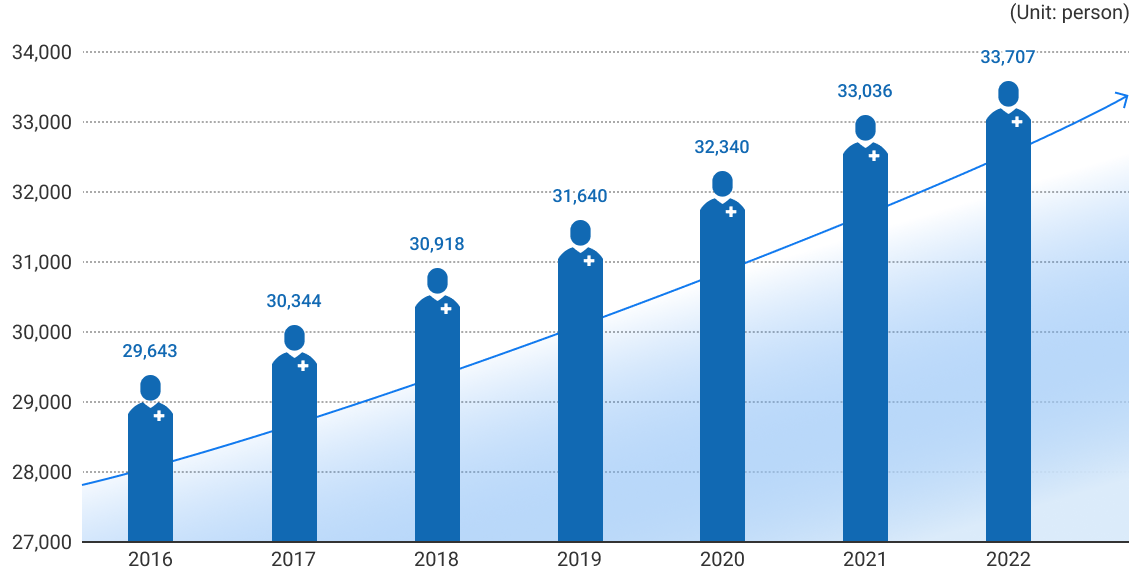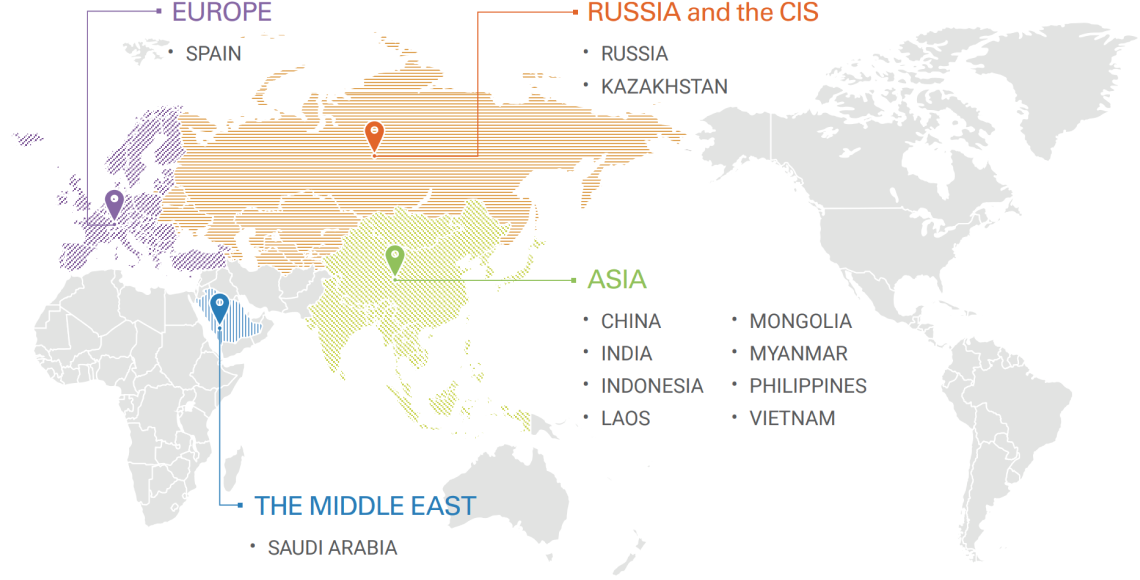-
01
Superior Technology
- The delicate and accurate dexterity of Koreans is well known in several fields. In particular, medical and scientific technologies that require sophisticated hand techniques, such as stem cell extaction, microscopic surgery, and robot surgery, prove that many Korean scientists and physicians have extraordinary skills. For this reason, the number of overseas patients visiting Korea for medical and dental surgery or treatment is increasing. This is particularly advantageous in the dental field, where most procedures require delicate and sophisticated manual techniques.
-
02
Standardized Dentist Training Education
- Korea has been training dentists at 11 colleges and schools of dentistry with systematic curricula and clinical practices. As such, 11 specialty-curricula certified by the Ministry of Health and Welfare have been used in training dental specialists every year since 1967. In addition, it is mandatory for all dentists to learn up-to-date techniques through supplementary training in order to maintain their dentist licenses. Through this system, the ability of Korean dentists can be always up-to-date.
-
03
Top-quality Domestic Implants and Other Dental Materials
- The number of implants and dental materials certified by the Ministry of Food and Drup Safety used in the domestic market is estimated to be dozens, most of which are made in Korea. In particular, top market share manufacturers (e.g., Osstem, Dentium, Neobiotech, Megagen, Genoss) leading the domestic market with an increasing overseas market share have been well recognized by both domestic and foreign clinicians, in terms of long-term stability of treatment results. The results of lab-scale, preclinical, and clinical studies using materials, as well as clinical practices, have been published and cited in many renowned SCI(E) journals, providing world-recognized excellence of domestic materials.
-
04
Efficient Communication
- The Korean educational system includes foreign language courses. For this reason, many Korean dentists are fluent in English, and the number of physicians speaking Arabic has been increasing due to the increasing number of patients visiting from the Middle East. The number of physicians from Saudi Arabia and Kuwait coming to Korea for specialty training has been steadily increasing, efficiently solving problems in treating patients from Arabic countries. In cases of patients who speak a language that the physician does not speak, the major dental hospitals can get support from a multi-lingual translator during the entire dental treatment.
-
05
Extensive Clinical Experience
- According to the National Health Insurance Service, chronic periodontal disease is the second most common disease diagnosed in Korea. Severe periodontal disease, dental caries, and tooth fracturere quire implant after dental extraction, and due to the implant insurance service provided for patients over 65, implant treatment cases have increased. As stated previously, the number of foreign patients to receive dental treatment from experienced physicians who have completed systematic education has been increasing every year. This has provided Korean physicians opportunities to earn experience in treating foreign patients. In addition, Korean dentists have a deep understanding of the biological and cultural differences of diverse foreign patients, allowing them to care for patients in a physical as well as psychological aspect.
-
06
Excellence of domestic digital devices
- Korean information technology has been leading the academia and the global market for the past few years. Such power of technology accelerated the development of digital devices used in dental practices, leading to the development of a domestic oral scanner (e.g., Medit), implant planning soft ware (e.g., OnDemand), 3D printer (e.g., Dentium 3D printer), and digital guide implant surgery kit (e.g., Osstem OneGuide), all of which are widely recongnized in the domestic and foreign markets. Numerous study results using these products are reported, and both the domestic and overseas demand for these products are expected to increase.
-
07
Great reduction in treatment period through digitalized process
- Digital dental devices reduce the overall treatment period and simplify the procedure, reducing the recovery period as well. For example, in an implant case of an overseas patient, the dentist can conduct an implant surgery using the digitally manufactured surgical guide on the very first day of visit and connect the digitally manufactured final protheses within a few hours of the surgery, thus completing the treatment in one day. Such feature can be very helpful for foreign patients visiting Korea to receive treatment from Korean physicians. It enables patients' shorter stay duration in Korea, thus lessening the patients' burden and reducing after-surgery inconveniences.




